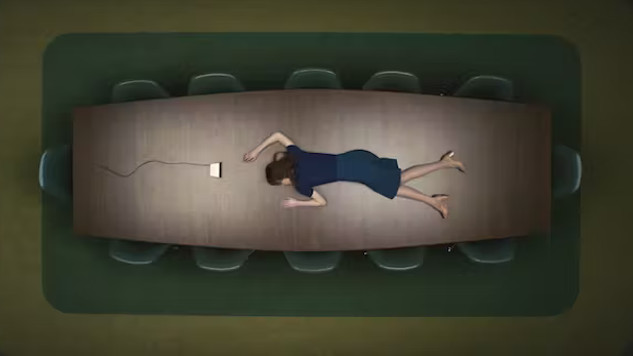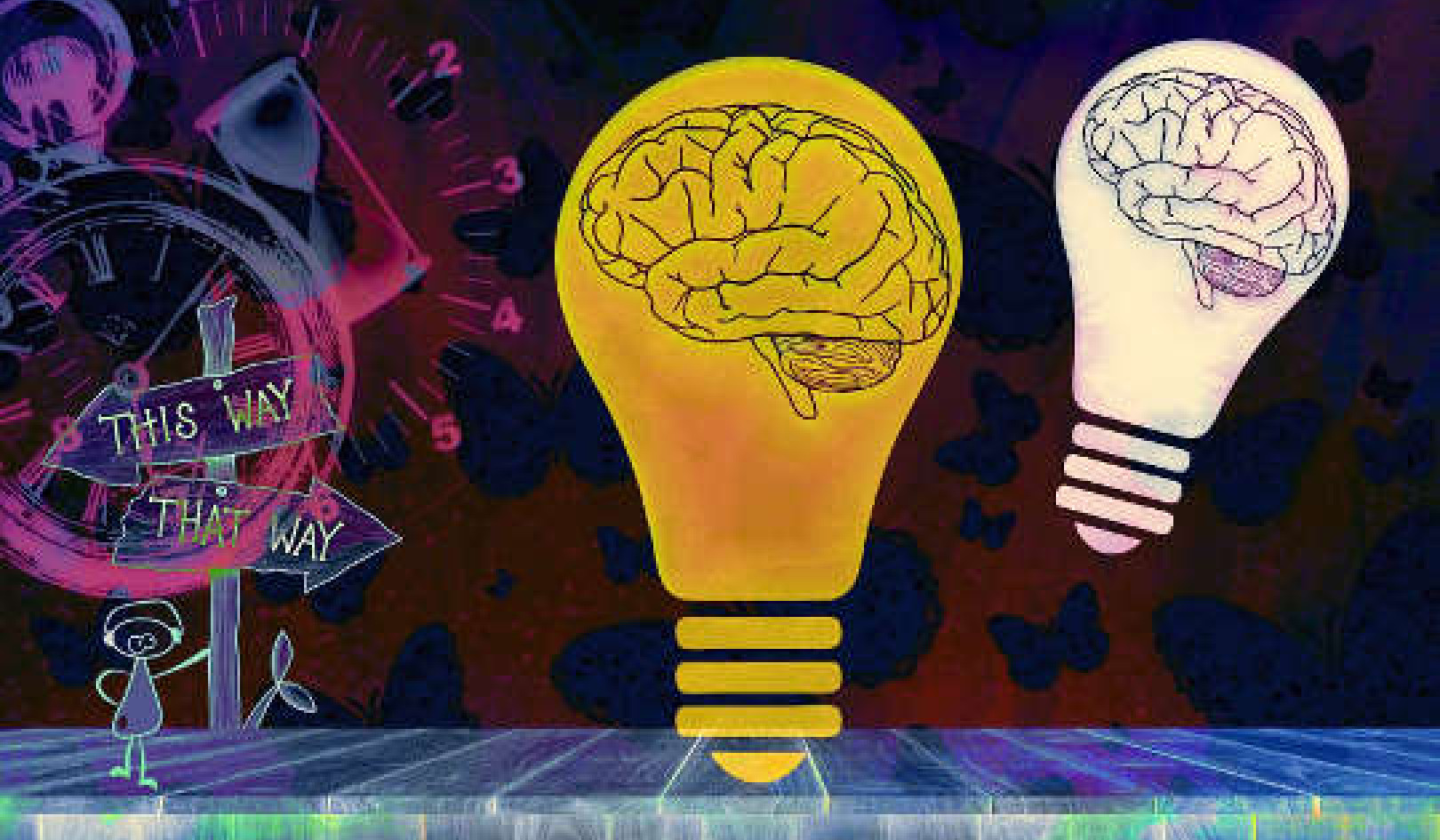
Apple TV+
In the hit dystopian TV series Severance, employees at biotech corporation Lumon Industries find it easy to separate work and home life. A computer chip is inserted in their brains to act as a “mindwipe”. They leave all thoughts of home behind while at work, and completely forget about their work when at home.
While the show explores the pitfalls of such a split in consciousness, there’s no denying it’s a tantalising prospect to be able to “flick the off switch” and forget about work whenever you’re not actually supposed to be working.
This is known as “psychological detachment”. People who can do it are happier and healthier, and experience less fatigue. But many of us struggle to detach and disconnect mentally from work, particularly when our jobs are demanding and stressful.
It may not be enough simply to be physically away from work, particularly in an era when so many of us work from home. We also have to stop thinking about work when we’re not there – whether it’s fretting over your to-do list while out at dinner, thinking about your unanswered emails while you’re at your daughter’s soccer game, or lying in bed pondering what you’ll say at tomorrow’s board meeting.
The art of detachment
Your choice of activity outside work can be crucial to this process of psychological detachment. To learn more about what strategies are most effective, my research surveyed nurses who were working shifts in hospital emergency departments in 2020, a highly stressful work environment.
My colleagues and I collected data from 166 nurses, using a survey called the Recovery Experience Questionnaire. This included collecting information about the underlying psychological experiences associated with home-time activities, such as feeling relaxed while reading a book or going for a walk.
Importantly, our survey results also showed nurses who were better able to forget about work had less fatigue and better physical and mental health.
Our results identified three key strategies that helped our survey participants to reduce fatigue and mentally recover from work:
- exercise
- spending time with family and friends
- leisure pursuits.

Exercise and spending time with friends are great ways to unwind. Anupam Mahapatra/Unsplash, CC BY
The physical benefits of exercise are well known. But exercising – whether it’s doing yoga, going for a run or playing netball – also brings mental benefits by encouraging you to focus deeply on what you’re doing rather than dwelling on outside thoughts.
Friendship and social connection are also good for our wellbeing. Research suggests people who have plenty of friends and confidants are less likely to die from chronic disease. And one study found people who undertake a difficult task with the help of a friend have fewer abrupt changes in heart rate than those who tackle the task alone.
Deliberately making time to spend with family, friends or pets can help us forget about work at home, and to centre our attention instead on what is important to us besides work.
Many of the nurses in our study reduced the effects of fatigue during home time by pursuing hobbies and interests such as sewing or gardening. But you shouldn’t worry too much about what specific activity you pursue – the main thing is to pick something you find pleasurable and engaging, and which fits comfortably around your existing commitments.
Leave your work at work
Finally, switching off from work also means not letting your work come home with you. Where possible, complete all your daily tasks so these aren’t on your mind at home. Unplug from work-related technology by not checking work emails or texts.
Of course, technology and working from home have now made separating work and home even harder. But setting healthy routines can help put mental as well as physical boundaries around your work time – even when your workplace is in the next room.![]()
Jane Gifkins, Researcher, Centre for Work, Organisation and Wellbeing, Griffith University
This article is republished from The Conversation under a Creative Commons license. Read the original article.

Related Books:
Atomic Habits: An Easy & Proven Way to Build Good Habits & Break Bad Ones
by James Clear
Atomic Habits provides practical advice for developing good habits and breaking bad ones, based on scientific research on behavior change.
Click for more info or to order
The Four Tendencies: The Indispensable Personality Profiles That Reveal How to Make Your Life Better (and Other People's Lives Better, Too)
by Gretchen Rubin
The Four Tendencies identifies four personality types and explains how understanding your own tendencies can help you improve your relationships, work habits, and overall happiness.
Click for more info or to order
Think Again: The Power of Knowing What You Don't Know
by Adam Grant
Think Again explores how people can change their minds and attitudes, and offers strategies for improving critical thinking and decision making.
Click for more info or to order
The Body Keeps the Score: Brain, Mind, and Body in the Healing of Trauma
by Bessel van der Kolk
The Body Keeps the Score discusses the connection between trauma and physical health, and offers insights into how trauma can be treated and healed.
Click for more info or to order
The Psychology of Money: Timeless lessons on wealth, greed, and happiness
by Morgan Housel
The Psychology of Money examines the ways in which our attitudes and behaviors around money can shape our financial success and overall well-being.























